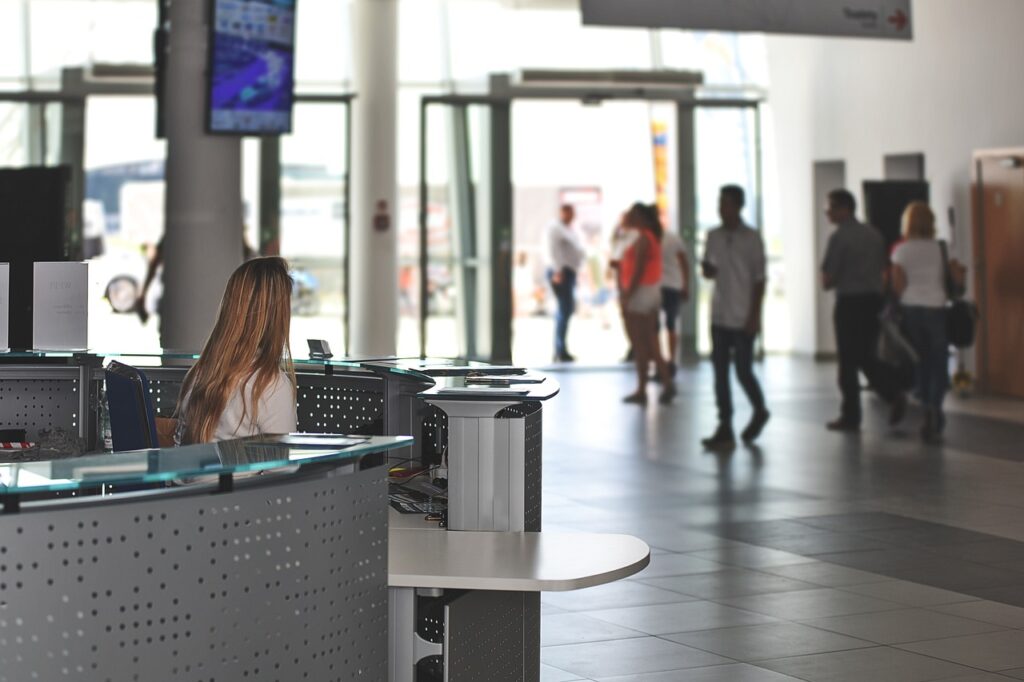If you are visiting Scandinavia for the first time, you’re probably hoping that you’ll be able to communicate in English. In this blog post, we’ll answer the question: “Do They Speak English in Scandinavia?”
We’ll focus on three popular Scandinavian countries – Sweden, Denmark, and Norway. While the official languages are Swedish, Danish, and Norwegian respectively, you’ll be happy to know that English is widely spoken across the region. Studies show that an impressive percentage of the population in Scandinavia, estimated at around 80%, speaks English fluently.
So, let’s dive deeper into the topic and uncover how English can be your key to communication throughout your trip to Scandinavia!
Do people speak English in Sweden?
In Sweden, English proficiency is widespread, making it easier for visitors to communicate. According to statistics, around 86% of Swedes possess a strong command of English, with a large percentage speaking it fluently. Urban areas, such as Stockholm, Gothenburg, and Malmö, tend to have higher English proficiency rates, while rural regions may have slightly lower levels of fluency. Nonetheless, you can generally expect to find English speakers throughout the country, especially among the younger generations and those working in the tourism industry.
When conversing with locals in Sweden, you’ll discover that many are open to speaking English with tourists. Swedes are often receptive and willing to switch to English to assist visitors. You can discuss recommendations for local attractions, order food at restaurants, or seek directions. You’ll find that English is commonly used in various everyday situations. Engaging in basic conversations about the culture, and weather, or even exchanging pleasantries with locals is typically effortless in English, providing a convenient and enjoyable experience for travelers exploring Sweden.
Do people speak English in Denmark?
In Denmark, most locals speak English, making it easy for travelers to communicate effectively. Statistics show that approximately 86% of Danes speak English, with a significant portion being fluent in the language. English proficiency tends to be higher in urban areas like Copenhagen, Aarhus, and Odense, where many residents are accustomed to using English in their daily lives. In more rural regions, the level of English proficiency may be slightly lower, but you can still find individuals who can communicate in English.
When interacting with locals in Denmark, you’ll discover that they are all willing to speak English with tourists. Danes are generally known for their high English proficiency and open-mindedness toward using English as a means of communication. Whether you’re seeking information about attractions, asking for directions, or engaging in casual conversations, you can comfortably do so in English.
Do people speak English in Norway?
In Norway, English proficiency is also widespread. Statistics reveal that approximately 90% of Norwegians speak English, with a considerable number being fluent in the language. In cities like Oslo, Bergen, and Trondheim, where lots of Norwegians use English regularly, people generally have a better grasp of the language. However, in remote or rural areas, English skills might not be as strong, but there are still people who can speak and understand English well enough to communicate effectively.
When you interact with locals in Norway, you’ll discover that many Norwegians are not only able but also eager to speak English with tourists. Norwegians are renowned for their impressive English abilities and are often delighted to have conversations in English. English becomes an invaluable asset for connecting with the warm-hearted locals of Norway, whether you seek recommendations for local attractions, engage in discussions about outdoor activities like hiking or skiing, or simply enjoy casual conversations.

Do people speak English in the rest of the Nordic countries?
In the rest of the Nordic countries (Finland, Iceland, Greenland, and the Faroe Islands), English proficiency levels are also high. For example, around 70-80% of the population can speak English to some extent in Finland. In Iceland, the majority of the population, around 90%, is fluent in English. Greenland and the Faroe Islands also have a high percentage of English speakers, with many residents being bilingual in their native language and English.
While the level of English proficiency may vary slightly compared to Sweden, Denmark, and Norway, communication in English is generally smooth and effective in these countries. In some more remote areas or smaller towns, you may encounter slightly lower levels of English proficiency, but overall, you can expect to find locals who can understand and speak English well.
As for the challenges you may face with English in the rest of the Nordic countries, they are typically minimal. Some older generations in more rural areas have limited English skills, but most people, especially in popular tourist destinations, are proficient in English. Although it’s respectful to use a few simple phrases in the local language, you can typically depend on English for most of your communication needs.
| Country | Percentage of English Speakers |
|---|---|
| Sweden | 86% |
| Denmark | 86% |
| Norway | 90% |
| Finland | 70% |
| Iceland | 91% |
| Faroe Islands | 80% |
| Greenland | 70% |
Why are Scandinavians so fluent in English?
You’ve probably realized by now that you can comfortably speak English in Scandinavia. It is common to find a large portion of the population proficient in English, particularly among younger generations. In these countries, English is often taught as a second language from an early age, and it is widely spoken and used in various aspects of daily life. You’ll encounter locals who can effortlessly switch between their native language and English, making communication with tourists seamless.
Several factors contribute to the high level of English proficiency in Scandinavia. Firstly, the education systems in these countries prioritize language learning, with English being a core subject in schools. Secondly, the prevalence of English-language media, such as movies, TV shows, and music, allows individuals to immerse themselves in the language from a young age.
Additionally, the strong emphasis on international business, tourism, and globalization in these countries motivates people to acquire strong English skills to communicate effectively with the rest of the world. The combination of these factors, along with the Scandinavian value placed on education and multiculturalism, has created an environment conducive to English language proficiency.

What are the challenges when you speak English in Scandinavia?
One challenge when speaking English in Scandinavia is the presence of different dialects and accents. While most Scandinavians have a good command of English, their pronunciation and use of certain words may vary depending on their native language and regional dialects. This can sometimes lead to minor misunderstandings or difficulties in comprehending certain nuances of the language.
Another challenge when communicating in English in Scandinavia is the cultural politeness and reservedness often exhibited by the locals. While they understand English, some Scandinavians may feel hesitant to speak it freely, especially in formal or public settings. They may prefer to use their native language or may be shy about their accent or proficiency level. It’s important to be patient, allowing for a comfortable and understanding environment to foster communication.
Conclusion
In summary, the answer is yes! People do speak English in Scandinavia, making it convenient for travelers who do not speak the local languages. Scandinavians have high English proficiency levels, especially in urban areas, and are generally willing to communicate in English with tourists. While there may be some challenges in certain situations or remote regions, overall, language should not hinder your travel experiences in Scandinavia.
